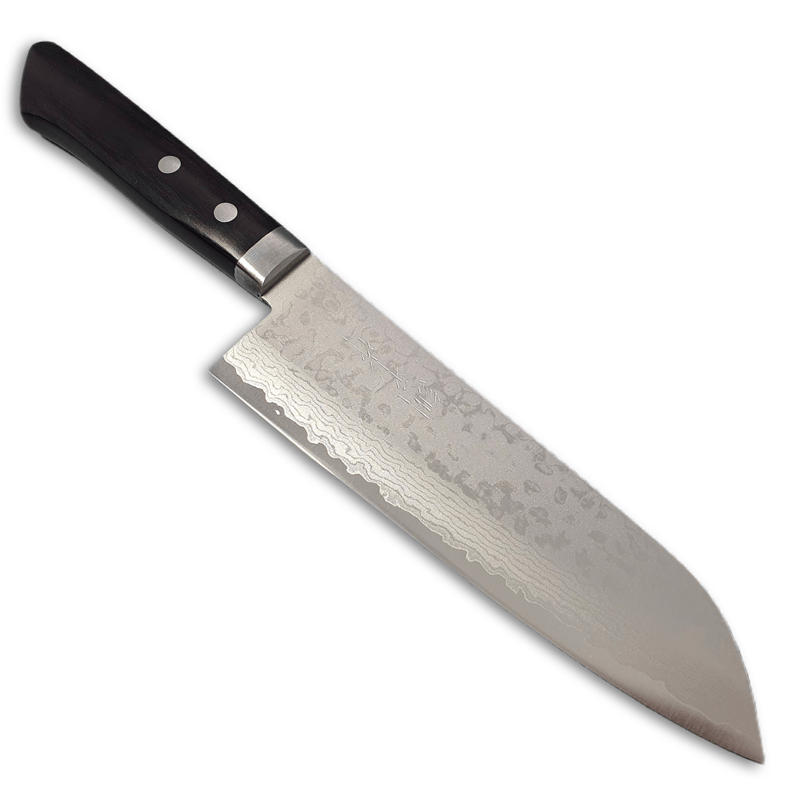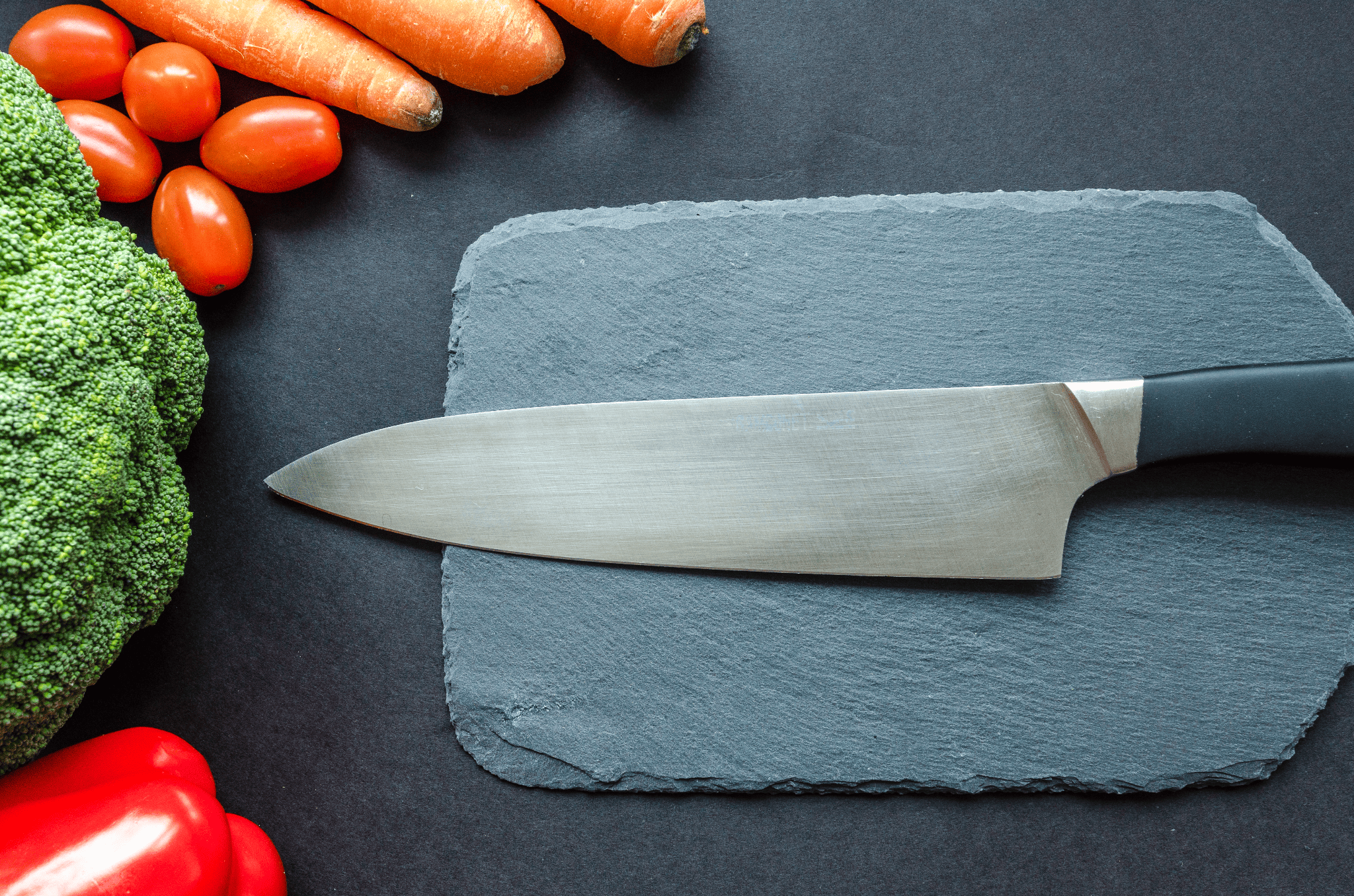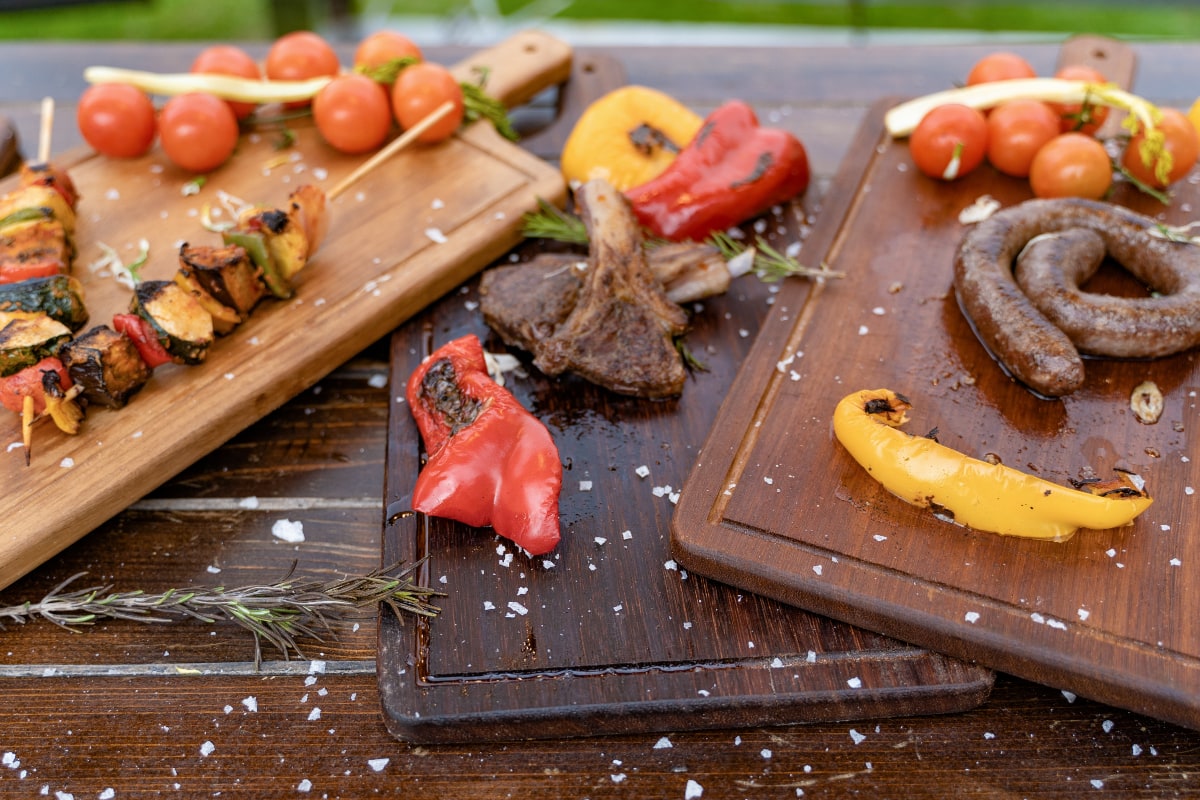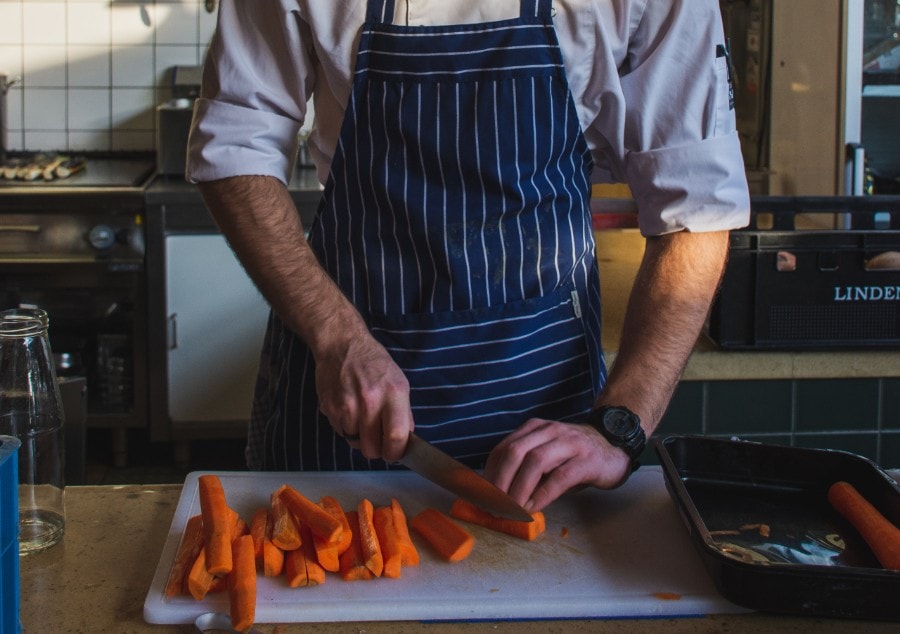Damascus chef knives are made with two different types of steel, allowing them to be incredibly strong and durable. The Damascus process requires high-carbon steel folded over itself, creating dozens of layers. This process makes for a solid blade. There are several reasons for this strength; one reason is that the folding allows the high carbon steel to bond together into one solid piece.
The folding also creates a distinctive pattern that can be seen on the blade, adding an aesthetic flair. Another reason for Damascus chef knives’ strength is that the combination of two different types of steel makes it easier to create a more robust blade without increasing the thickness so much that it loses its flexibility.
Chef knives usually come in two variants: an 8-inch and a 10-inch length. These sizes refer to its blade size and not the whole knife, including the handle.
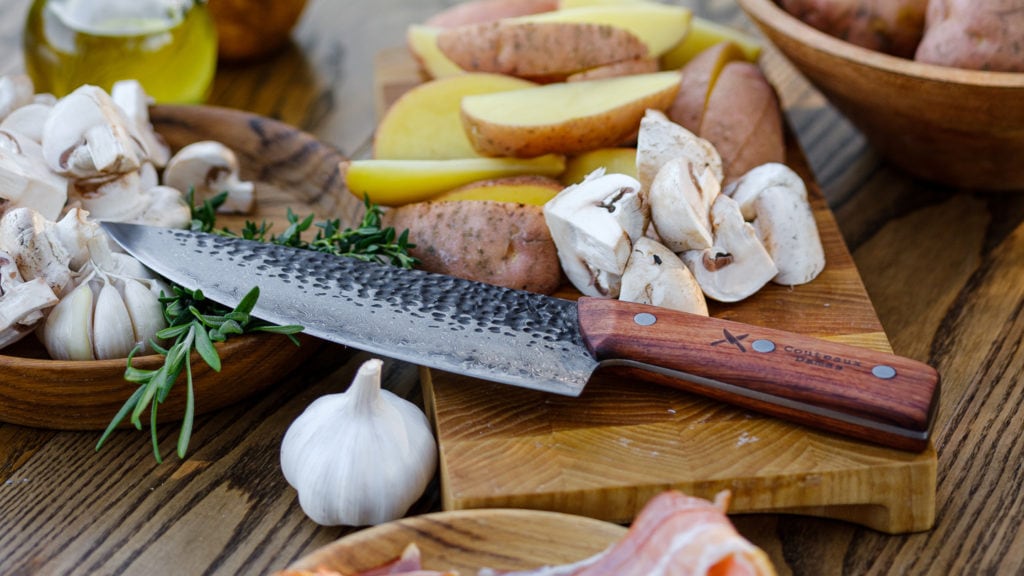
Uses of chef knives
Damascus chef knives are one of the most versatile knives as a chef can use these knives for many different purposes in the kitchen. It is a perfect knife for dicing and chipping vegetable fruits. Most chefs prefer to have this knife in their arsenal of tools as its usefulness in the kitchen is phenomenal.
What to avoid when using chef knives
While Damascus chef knives are robust and durable, they’re still knives. It’s essential to use proper care to last you a long time. You should avoid doing these things:
Using the wrong chopping board
Using Chopping boards made from glass, ceramic, or marble is terrible for your blade. Using those chopping boards will dull your knife quickly and shorten its lifespan. Just stick to the traditional wooden chopping boards.
Improper use of the knife
Using your Damascus chef knives to cut bones is quite harmful to the blade. For those tasks, it is better to use a more suitable knife like a meat cleaver or bone cutting knife.
Cutting hard objects with a knife will quickly dull your blade, if you notice that your blade is getting dull be sure to sharpen it as soon as possible. You can check our guide for more tips about sharpening a knife.
Storage
Like any other steel knife, Damascus is not truly resistant to rusting. Storing the knife in a damp place will make it develop rust quickly.
After cleaning the blade, you make it a habit of drying it as soon as possible to avoid further rusting.
Applying a thin coat of oil before storage is the best method of preventing rust for your Damascus knives.
What makes Damascus chef knives unique?
The knife made of Damascus will give a distinctive wavy feel and look along its blade. Aside from its beautiful appearance, one major factor that makes this steel genuinely unique is its composition of multiple types of steel.
Modern Damascus steel is usually an alloy of stainless steel and high-carbon steel. With this configuration, Damascus would have good rust-resistant properties paired together with high durability.
How to clean Damascus chef knives?
Cleaning is not as hard as it seems. You can clean a Damascus chef knife like any other knives out there with dishwashing soap and water.
After washing, it is advisable to apply a layer of oil to the Damascus knife for rust protection. This will help keep your Damascus chef knife in top condition. There are a variety of oils that you can use, such as mineral oil or Camilla oil. Simply put a small amount on a cloth and rub it into the blade until it’s fully coated. Be sure to do this after every time you wash the knife.
Are Damascus Chef knives worth it?
Good Damascus chef knives are incredibly durable and robust, making them perfect for any chef who wants a reliable knife they won’t have to replace for years.
These chef knives look beautiful and provide such a unique feel. It’s easy to see why so many people choose Damascus chef knives!
